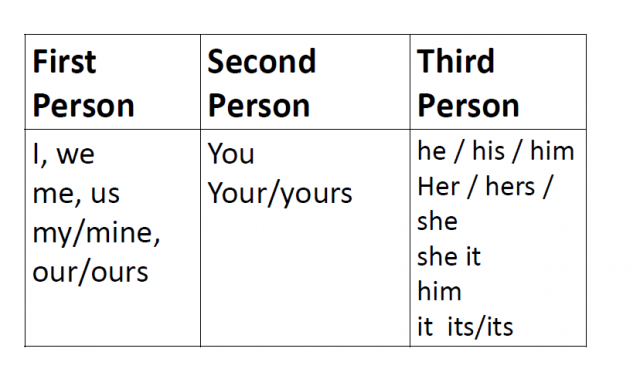Episodes: I want to tell you some things about first-person criticism

I read a lot of writing from young, wannabe critics in my job. That's partially because of my annual Christmas readathon (which I still have to complete for 2014... don't tell anyone). It's partially because my job involves keeping up with younger, up-and-coming writers. And it's partially just because I've always taken it as a point of pride to look for people outside of my immediate circles, largely driven by the gigantic chip I had on my shoulder toward the New York media world for most of my 20s.
And I want to tell you something: First-person criticism is running rampant, and it has to go. (Ironically, I'm going to tell you this in first person.) I don't mean that, like, you're saying the word "I" here and there in your review to make note of the circumstances of your screening or something like that. I mean the reviews that double as lengthy personal essays, that might start off with 400-600 words about some barely connected anecdote from the person's life. I mean reviews that begin with a lengthy disquisition on the critic's relationship to the artist's previous work. I mean stuff that shifts the review to being more about the critic than the art.
This form of writing has become incredibly popular in the last five years or so, I think because the internet encourages it, and because the TV recap form, especially, is so conducive to it. And, yes, I am one of the worst practitioners of all of the above, though I like to think I gradually weaned myself off of it at AV Club and barely use it at all at Vox.
But it makes sense to me why it's easy to overindulge. All criticism wants to be a personal essay. Anybody who tells you about "objective" criticism is lying to you because such a thing doesn't exist. When we write about a movie, we're writing about ourselves, through the prism of the movie. But part of the trick of criticism is to keep the audience distracted (with the movie) while we talk about what we really want to talk about (ourselves).
Still, there's no better way to lose the audience's trust than to simply abandon the art entirely for a lengthy disquisition on something or other. So to that end, here are five little rules I constructed for myself to consult every time I'm tempted to use first person. You might have to! But you really should make sure it's the only way.
Don't use first person: Seriously. Is there another way to do it? Do that.
If you have to, specificity is your friend: This, I've realized as a white man myself, goes double for white guys. I have read too many reviews that double as vague tales of some relatively affluent, just out of college dude struggling to reconnect with his father and/or father figure, and it's tired. It's played out. You don't bring in first person to talk about the sorts of things that are true of many people in the human race. You bring it in to talk about things that are only true of you. So, for instance, I felt on solid ground if I could talk about growing up on a pig farm, or fundamentalist Christianity, or being adopted. If I was just, like, talking about how much I loved my grandpa. that was a less interesting idea.
The tie to the work better not be what everybody thinks it is: If you are writing about an episode about a strained relationship between mother and daughter, don't write about your own relationship with your mother (or daughter). Write about the time you rescued the baby birds on the sidewalk and put them back in the nest, and passersby tried to assure you the thing about a mother smelling you on the babies was just a myth, but even now, you're not so sure, and then loop back around (hopefully in an oblique way) to the episode. I'm going to bold this, because it's just a general rule of writing: In general, your first impulse is one everybody else has already thought of. Your second impulse probably is, too. Keep going.
Try third person or second person instead: You'd be surprised how much you can get away with just by talking about yourself, but shifting the pronouns. Use "you" if you think you're talking about a hopefully somewhat universal experience (or filtering something the character in the show does through your own viewpoint). Use "he/she/they" if you want to gain some distance and perspective. It's sort of turning your life into a short story, and you'd be surprised how rarely your readers pick up on it. For examples, go find my AV Club writing on The Sopranos and Mad Men. I used this technique all the time there.
First person only works with emotional grounding: This sort of ties all of the above together, but you use first person because you want to provoke an emotional reaction. Don't use it if you're just going to tell a story about a funny thing your friend said, because it will never be as funny. If your friend said the funny thing right as he was screaming at you for sleeping with his girlfriend, well, you might be onto something.
I don't want to discourage anybody from writing like this. But I do think it's something that should be better considered than it usually is. Hence the above.
--
Episodes is published daily, Monday through Friday, unless I don't feel like it. It is mostly about television, except when it's not. Suggest topics for future installments via email or on Twitter. Read more of my work at Vox Dot Com.




